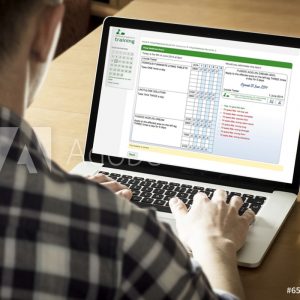04 Nov Gabapentin and pregabalin – controlled drugs demystified
Gabapentin and pregabalin were reclassified as controlled drugs (CDs) back in April 2019, yet many health and social care providers still seem unsure how to treat them. Are they controlled drugs? In short, yes they are controlled drugs but no, they do not need to be locked in a CD cabinet, recorded in a CD register or given with a witness.
If you find this article useful, sign up for updates when new articles are published (on the left hand side or bottom of the screen for mobiles).
Why don’t the rules apply to these drugs?
Because they are schedule 3 controlled drugs, not schedule 2 controlled drugs. In law (The Misuse of Drugs Regulations 2001) controlled drugs are divided into five different schedules: schedule 1 CDs carry the most risk, schedule 5 carry the least.
In a care home, it’s only the schedule 2 CDs that need to be:
- locked up in a CD cabinet
- recorded in a CD register and
- given with a witness.
None of these controls apply to controlled drugs in schedules 4 and 5.
What about schedule 3 CDs?
You may have noticed I skipped schedule 3…
That’s because schedule 3 is complicated. It’s a kind of mixed schedule containing almost 50 controlled drugs. The rules state that about half of the schedule 3 CDs need to be kept in a CD cabinet, but the other half do not need to be locked up. The rules also state NONE of the schedule 3 CDs need to be recorded in a CD register (even the ones that need to be locked up).
Confused?
I don’t blame you. Luckily most of the 50 odd controlled drugs in schedule 3 haven’t been prescribed for years. The only ones still in use today are buprenorphine and temazepam, both of which are in the “need to be locked in a CD cabinet” part of schedule 3.
Now let’s simplify things…
Even though none of the schedule 3 controlled drugs need to be recorded in a CD register, we do advise you to record temazepam and buprenorphine in the CD register. Otherwise, what’s the point of keeping them in a CD cabinet if you then don’t count them?
So what about pregabalin and gabapentin?
Gabapentin and pregabalin are in schedule 3, but not in the “must be kept locked in a CD cabinet” schedule 3 list. Hence,
they do not need to be kept in the CD cabinet, recorded in the CD register or given with a witness.
Unless you want to…
NICE guidelines for controlled drugs (2016) state that you can choose to apply extra controls to controlled drugs in the lower schedules if you risk assess that they might be stolen. Hence if you want to lock up other schedule 3, 4 and 5 controlled drugs, then you can do. Just know that it’s not a legal or best practice requirement though.
Want to know more?
We have controlled drugs workshops running regularly where you can learn how to:
- receive
- administer
- return/dispose
- carry out balance checks
on controlled drugs, and learn how to record all of these activities correctly in a controlled drugs register.
We have a new design of Controlled Drugs Register (click here for details) as well as an online (or in-person) course on Managing and Administering Controlled Drugs (click here for details)



